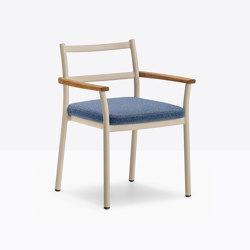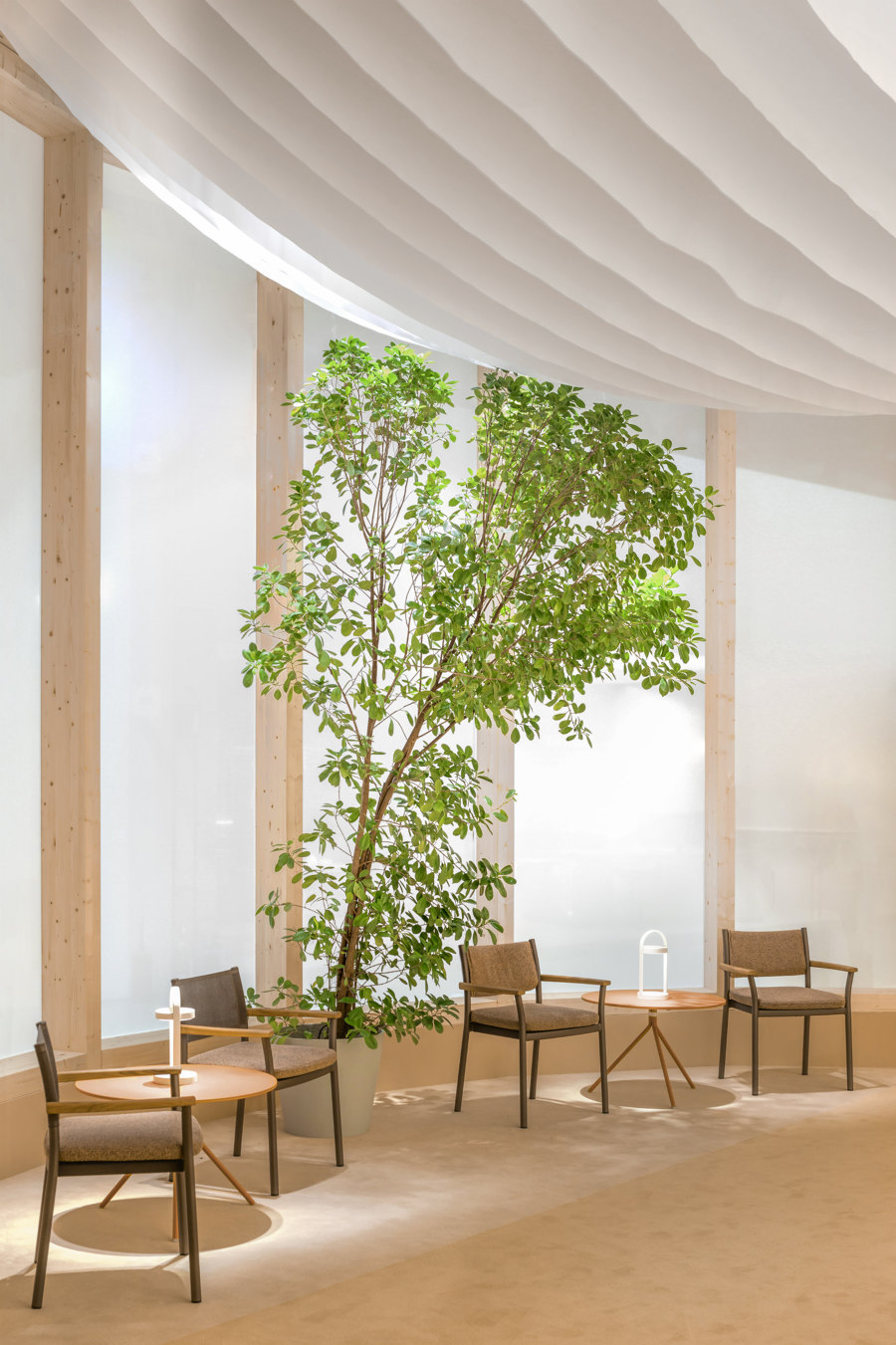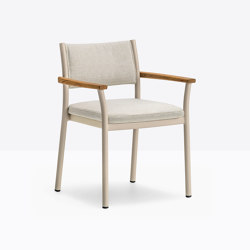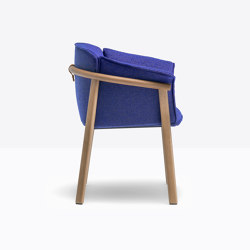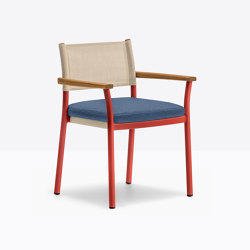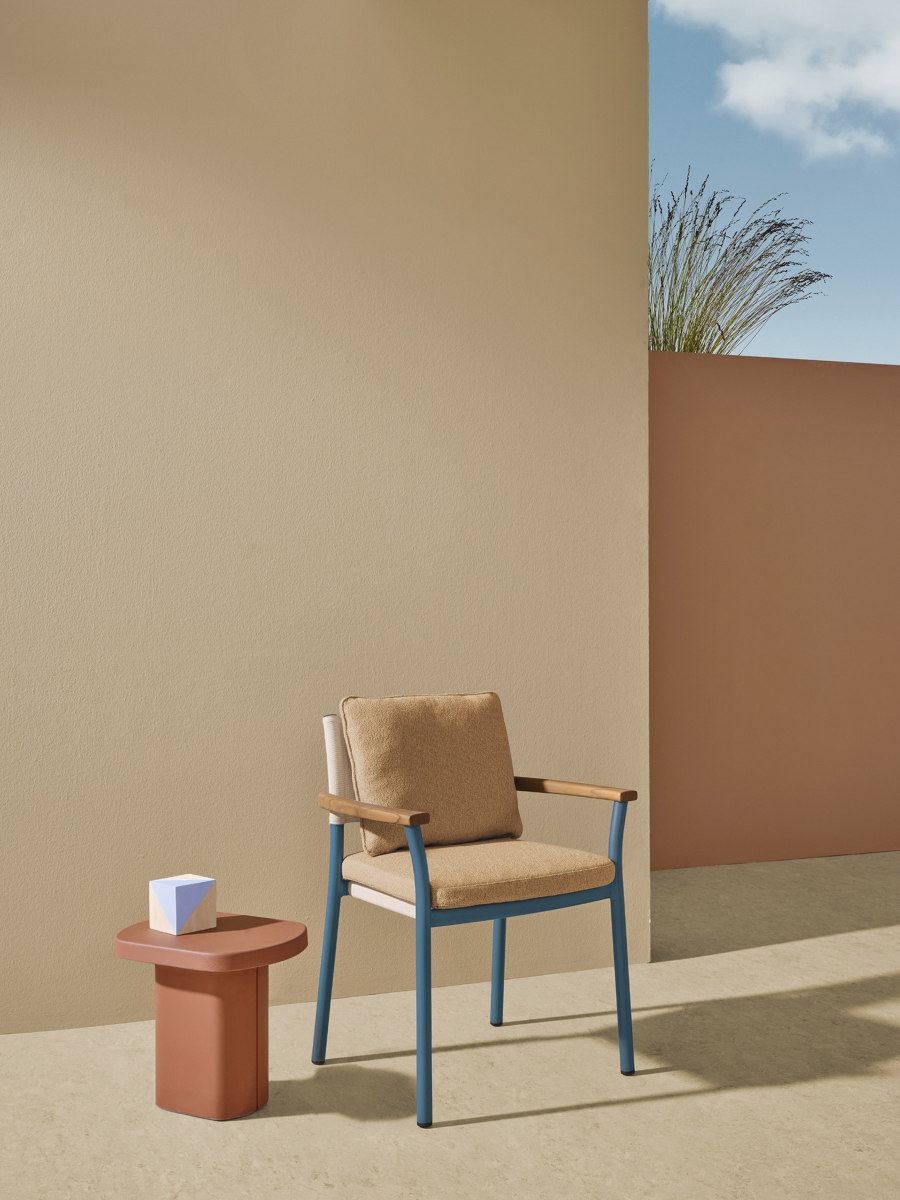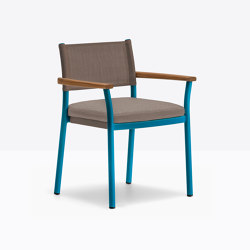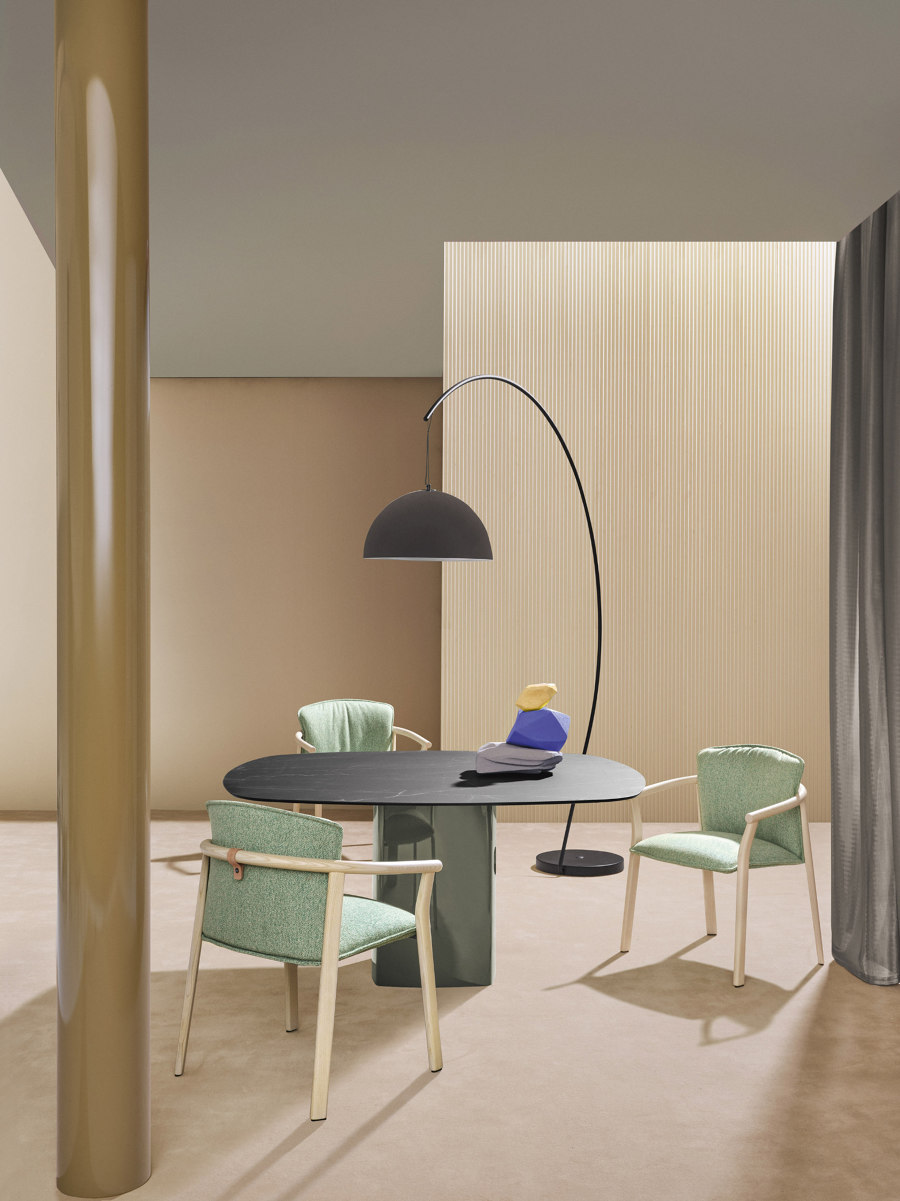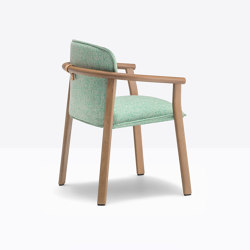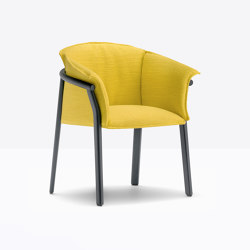Pedrali x CMP Design: industry and poetry
Storia del Marchio di Simon Keane-Cowell
MORNICO AL SERIO (BG), Italia
10.05.23
At Salone del Mobile this year, Architonic caught up with long-time Pedrali collaborators CMP Design to find out the secret to their happy relationship with the iconic Italian brand…
At Salone del Mobile in Milan this year, Pedrali showcased its new Guinea outdoor chair by CMP Design
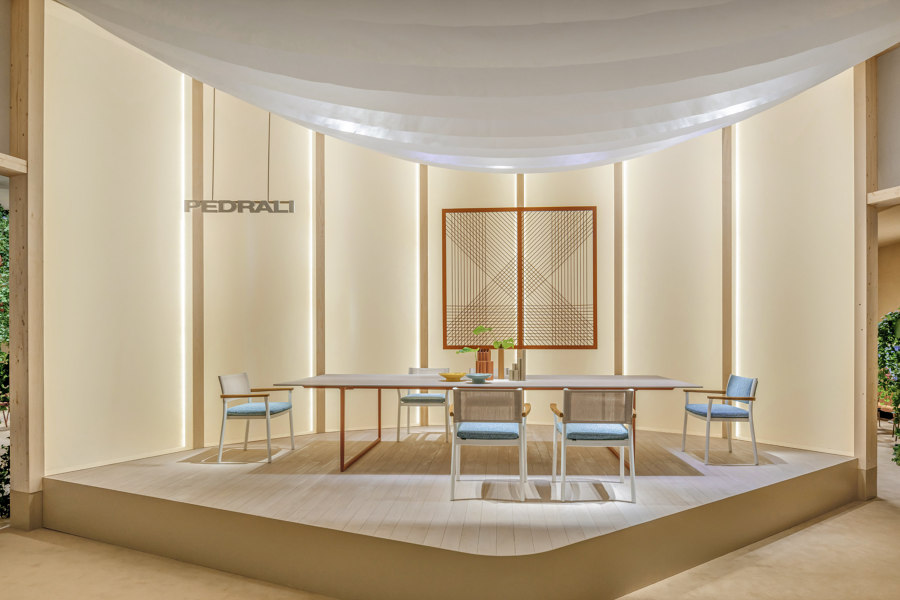
At Salone del Mobile in Milan this year, Pedrali showcased its new Guinea outdoor chair by CMP Design
×CMP Design. Or ‘i ragazzi’, as Pedrali CEO Monica Pedrali likes to call them. The boys.
It's 12 years since the Como-based design office – founded by Michele Cazzaniga, Simone Mandelli and Antonio Pagliarulo – first collaborated with the heavyweight Italian design manufacturer, a relationship that’s begotten a raft of perfectly pitched, long-selling furniture designs.
I suspect ‘the boys’ are older than they look. I've never asked them their ages, but here's the thing – they don't seem to age. In the years that I've crossed paths with them, they remain as fresh-faced as they always were. (It might have something to do with the fact that one of them likes to climb mountains (clean air), while another is the co-founder of Como Cocktail Week (conviviality). And the third is clearly blessed with good genes.) I suspect this is why I still tend to think of them as (and excuse the possibly patronising epithet) 'young designers', even though the intelligence and consideration of their creative output says they're anything but.
Along with Guinea (top), the Italian brand also presented another CMP Design creation, namely an inviting indoor variant of its Lamorissse chair (bottom)
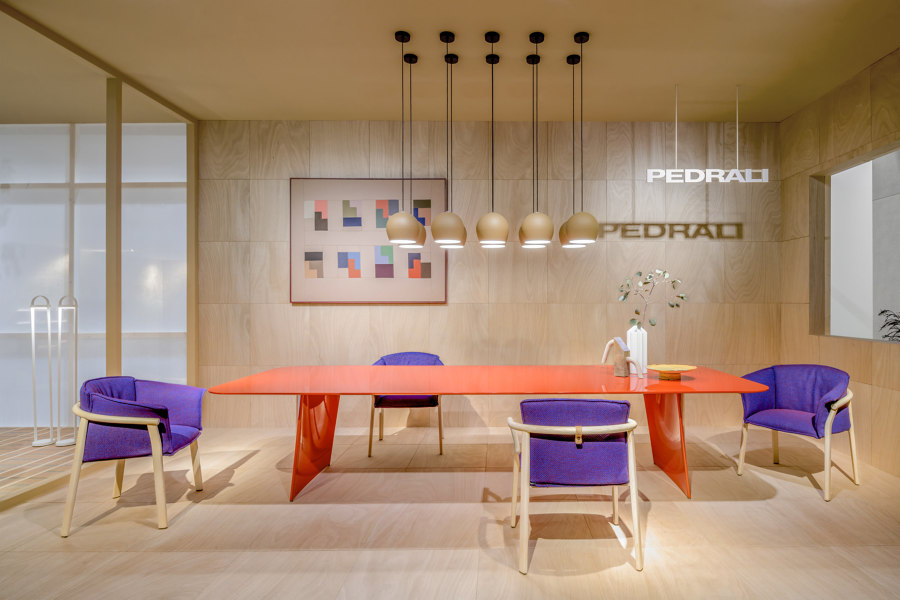
Along with Guinea (top), the Italian brand also presented another CMP Design creation, namely an inviting indoor variant of its Lamorissse chair (bottom)
×For a company like Pedrali that deftly walks the line between innovation – its investment in sustainability-driving, state-of-the-art industrial production is something other manufacturers could learn from – and tradition, CMP Design are a natural fit. Their fascination with how to deliver lighter, materially more efficient products that last longer is attended by a desire to create expressive pieces, ones which often reference, perhaps nostalgically, familiar and comforting typologies and the popular culture of Italy from the last century. Industry with poetry, if you will.
For a company like Pedrali that deftly walks the line between innovation and tradition, CMP Design are a natural fit
Their two latest contributions to the Pedrali portfolio – a new aluminium outdoor chair called Guinea that features teak armrests and removable upholstery, and an indoor version of their ultra-comfortable Lamorisse chair – are no exception. Launched at this year’s Salone del Mobile in Milan, I went to have a look, take a seat, and ask ‘the boys’ a few questions…
Designed for the outdoors, Guinea's soft cushion, backrest and distinctive teak armrests sit upon a welcoming aluminium frame. The different elements merge harmoniously but are easily disassembled at the end of their lifecycle
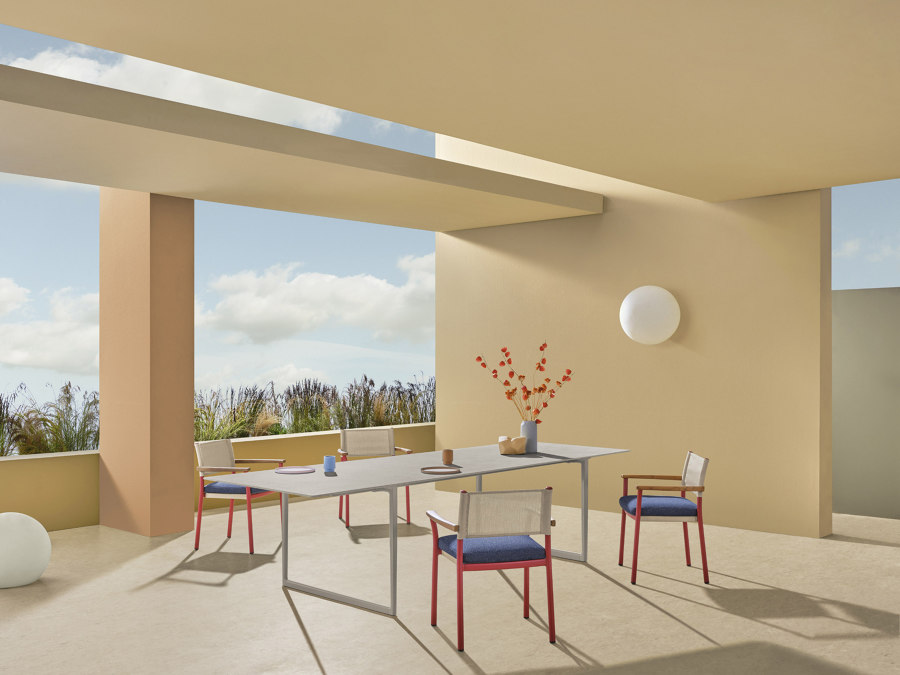
Designed for the outdoors, Guinea's soft cushion, backrest and distinctive teak armrests sit upon a welcoming aluminium frame. The different elements merge harmoniously but are easily disassembled at the end of their lifecycle
×Architonic: Congratulations on your 12-year collaboration with Pedrali. What’s your relationship with them like? What have you learnt? About the industry, about yourselves…?
Simone: Well, Pedrali describe us as family. I mean, we’ve created a lot of products together. Almost two a year.
Antonio: We’ve grown up with this company. 12 years ago, Pedrali was planning to make a change. They wanted to move much more into a leadership position in the industry. We’re so lucky that we have been part of this transition. But we’re still ‘i ragazzi’...
But, I’m guessing you’ve also helped drive that transition. I mean, you’ve helped Pedrali evolve, creatively speaking. It’s always a dialogue, right?
Simone: Well, we try consciously not to limit ourselves to the current technology that Pedrali has, but always want to push the boundaries. For example, with Guinea and Lamorisse aluminium, a new machine was required because both products use MIG welding…
'They all have different natures, different behaviours, different feelings,’ says CMP Design's Michele Cazzaniga in talking of the challenges attached to merging multiple materials in the creation of Guinea
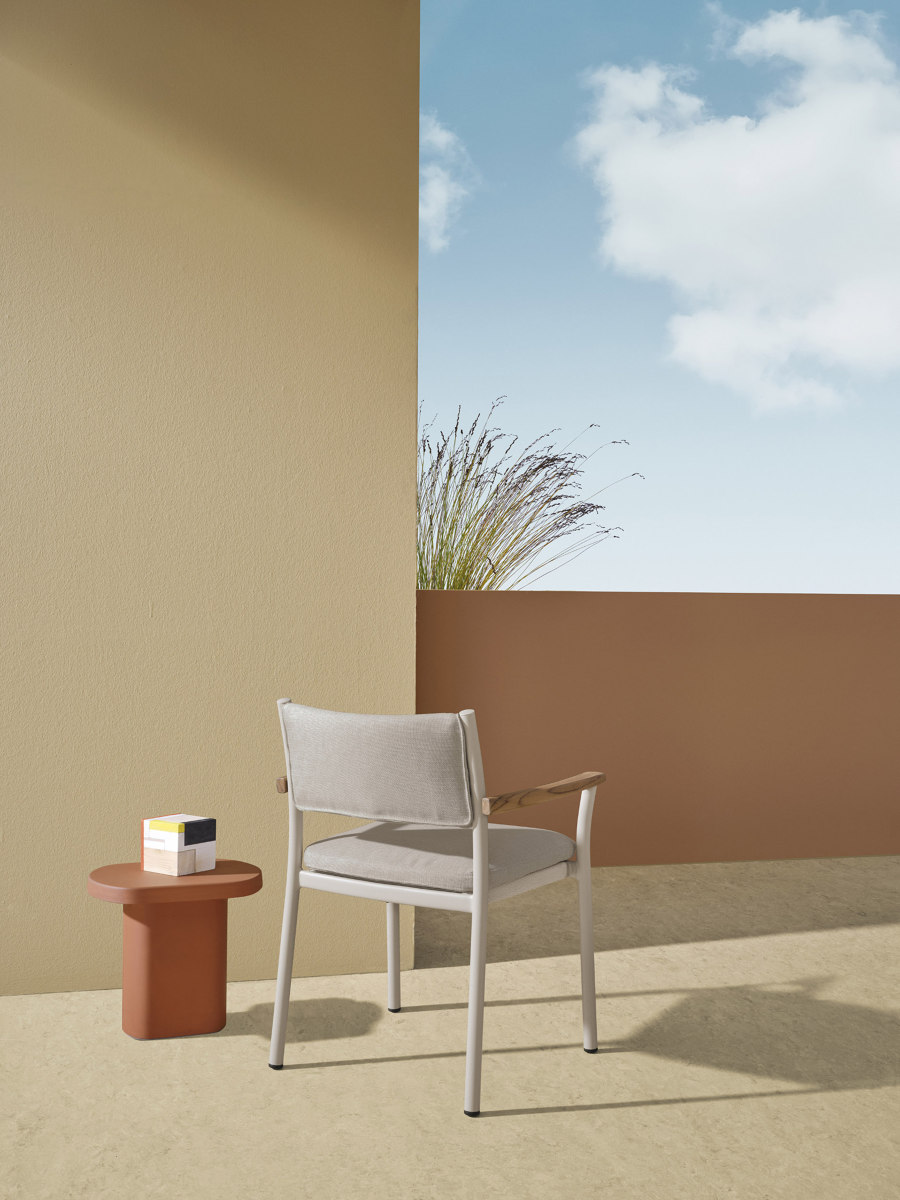
'They all have different natures, different behaviours, different feelings,’ says CMP Design's Michele Cazzaniga in talking of the challenges attached to merging multiple materials in the creation of Guinea
×This says something about the trust they have in your relationship, clearly.
Antonio: Pedrali are confident enough to take risks. But they also understand when is the right moment.
Simone: It’s like our steel chair Nolita. Before its launch, Pedrali were leaders in plastic outdoor seating, plastic moulding. But then with Nolita (which recalls Pedrali's original metal garden chair designs that go back as far as 1963), we had to change the manufacturing process. Pedrali decided at the right time to invest in this super technology push – a machine that curves and moulds at the same time.
And, by extension, you end up with a chair like Guinea, which is an outdoor product whose materials when combined make a high-end proposition. Beautiful teak, powder-coated aluminium, generous upholstery. This is miles away from simple plastic outdoor furniture.
Michele: We were using four different materials in Guinea. How to combine these? It’s not so easy. They all have different natures, different behaviours, different feelings. It was a challenge.
Take it inside: Launched at Salone this year, a wood-framed indoor version of Lamorisse had already been hinted at when its aluminium outdoor cousin was originally being developed
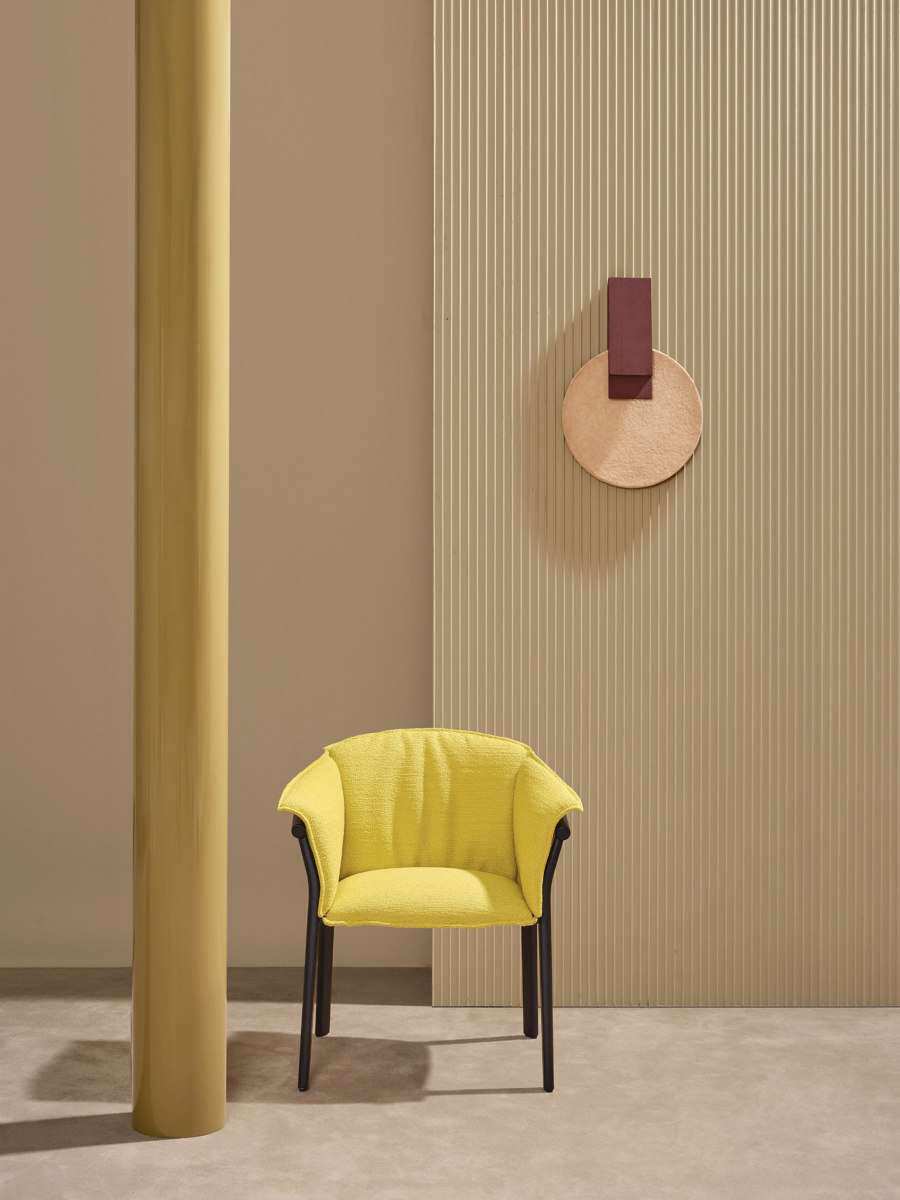
Take it inside: Launched at Salone this year, a wood-framed indoor version of Lamorisse had already been hinted at when its aluminium outdoor cousin was originally being developed
×But its construction is also very legible. You can see how the different elements can be taken apart for repair, refurbishment, reuse or recycling at end of life.
Antonio: We believe in the industrial process. That industry can produce something high-end, something beautiful, that is also beautiful to touch.
And the interesting thing is that the greater the sense of value that the products have over time, attended by more sophisticated production processes, the greater the sense of craft they also appear to express.
Antonio: We would like to translate craft techniques into something that can be done industrially. Take our Panarea chairs. Their backs are hand-woven. But it's the simplest way to weave a chair. We’ve deliberately reduced to a minimum the passages of the weaving.
'The boys' behind CMP Design, left to right: Antonio Pagliarulo, Michele Cazzaniga and Simone Mandelli
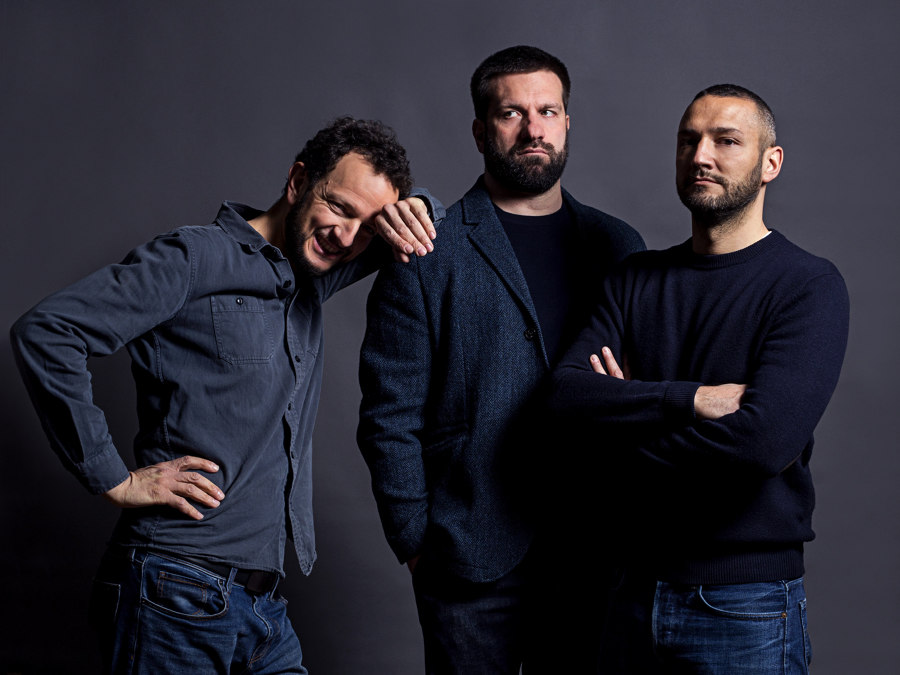
'The boys' behind CMP Design, left to right: Antonio Pagliarulo, Michele Cazzaniga and Simone Mandelli
×Tell me about Lamorisse wood. This is the extension of an outdoor piece, but for interior usage…
Simone: Well, when we presented the aluminium version of Lamorisse for outdoors, we also made a kind of provocation by showing a wood version. One year later, Pedrali came to us and said ‘OK. Let’s try this.’ They have a specialist wood-manufacturing facility in Manzano (Udine), so it was an amazing process.
Do you find the design process significantly different when you’re creating an outdoor chair as opposed to an indoor product?
Michele: Well, when you design an outdoor chair, it shouldn’t invade a space. Especially if it’s used in a public location. It needs to be light. Not just physically light, but also optically light. The gaze should pass through. But the design process is almost the same for us. And would be the same if we were designing a cocktail stick.
© Architonic
Head to the Architonic Magazine for more insights on the latest products, trends and practices in architecture and design.


